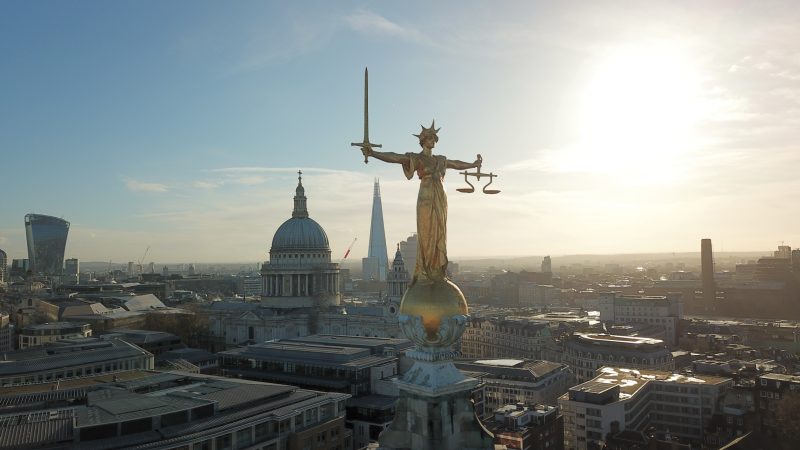
The dirty money crisis is at a tipping point. Unless parliament passes tough new legislation, we risk permanent damage to our capital’s reputation as a fair, trustworthy and dynamic place to invest and do business.
Kleptocrats from Azerbaijan. Oligarchs from Russia. People traffickers and drug smugglers from the world over. They have used London to launder their dirty cash. Some have purchased properties in Mayfair and Hampstead. Others have set up shell companies on Harley Street. And they have been enabled by accountants, lawyers, bankers and estate agents, who are extremely happy to be facilitators in London’s money laundering industry.
To enhance their legitimacy, many of these bad actors have abused the “golden visa” system to buy British citizenship; while others successfully have embedded themselves into the political establishment. In recent years, reputation laundering has become just as prevalent as money laundering in London.
This dirty money crisis is distorting our economy.
I have been a parliamentarian for over 25 years. Increasingly, over the last five or so of them, dirty money has seeped into more aspects of our public life and now risks corrupting our democratic institutions as well, if that has not already happened, which the evidence suggests that it has.
That is why the economic crime and corporate transparency bill, the scrutiny of which by the House of Lords continues this week, with the second day of the report stage on Tuesday, is so important. If the major flaws in an otherwise welcome bill are fixed, then we can begin the fightback against dirty money.
Last week, we made huge strides. Peers voted through amendments from Lord Agnew and Lord Vaux which, if the government sees fit not to overturn them, should put transparency front and centre. Amendments that lift the veil on secretive overseas trusts and allow us to know who really owns or controls any company registered in our country.
We will see how committed this government is to crack down on economic crime when these amendments go back to the House of Commons next month.
This week, in the Lords we turn our attention to corporate accountability. This will be a watershed moment for the UK’s toxic relationship with illicit finance. We will see votes on two key issues.
First, a cross-party group of peers has come together to support new proposals on criminal offences for economic crimes. The government already has committed to introducing a new offence for failing to prevent fraud, as well as to reforming the arcane ‘identification principle,’ which for decades has allowed corporate criminals to hide behind byzantine company structures and avoid being held to account. Both are welcome.
However, the government inexplicably has decided to exclude SMEs from this duty, even though they represent well over half of UK turnover and are disproportionately represented when it comes to being both the victims and perpetrators of fraud. A balance must be struck, of course – no one wants to burden small businesses with excessive red tape.
But when we are talking about fraud, which is now 41% of all crime against individuals in England and Wales and costs our economy some £190bn annually, can we honestly say that we are doing all we can? The government also has neglected to introduce an offence of failing to prevent money laundering, despite it costing our economy £100bn every year. I hope that we will send new proposals on both issues back to our colleagues in the lower chamber.
Second, we need desperately to give a helping hand to our struggling enforcement agencies. Under-resourced and outgunned, those charged with stemming the tidal wave of dirty money into our economy are walking a tightrope with every prosecution. Fail to pursue criminals and inevitably they will continue to commit crime. But take them on, with their expensive lawyers and all the loopholes at their disposal, and you risk budgetary oblivion with a single slip, resulting in substantial awards of costs.
Naturally, this has a chilling effect, which leads to diminishing effectiveness as agencies become risk averse. With smart amendments to the bill, we can limit the costs faced by our enforcement agencies and give them the firepower they need desperately to take on dirty money.
We need the government to accept these common-sense proposals that will toughen up the economic crime bill. This is our best and may be our last chance to bolster our defences and push back against dirty money, before London’s reputation as a good place to do business is lost for ever.



More from LabourList
West of England mayoral election: Who are the Labour candidates hoping to replace Dan Norris?
Labour’s Budget 2024: What policies could Rachel Reeves announce?
The Labour ministers dominating the airwaves on morning broadcast rounds